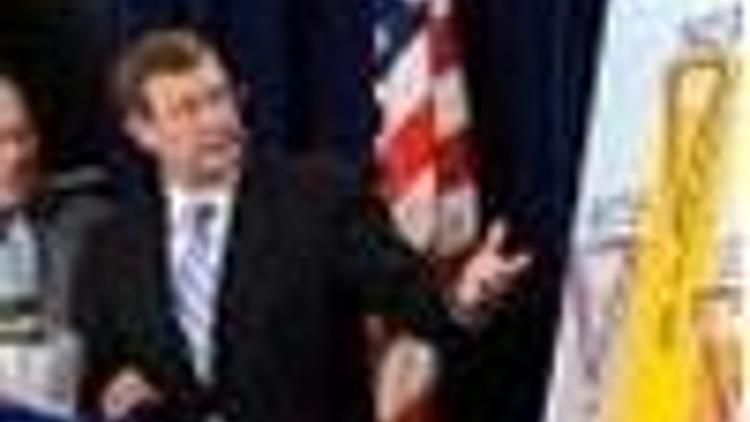U.S. deficit zooming to $482 billion as Bush leaves office
Güncelleme Tarihi:

The government's budget deficit will surge past a half-trillion dollars next year, according to gloomy new estimates, a record flood of red ink that promises to force the winner of the presidential race to dramatically alter his economic agenda.
The deficit will hit $482 billion in the 2009 budget year and be inherited by Democrat Barack Obama or Republican John McCain, the White House estimated Monday. That figure is sure to rise after adding the tens of billions of dollars in additional
The result is the biggest deficit ever in terms of dollars, though several were higher in the 1980s and early 1990s as a percentage of the overall economy.
Neither campaign is backing off from campaign promises — McCain to cut taxes and Obama to expand health and education programs — in light of the bleaker new figures.
"We can't afford not to invest in some major initiatives such as health and energy and middle-class tax cuts," said Obama economic adviser Jason Furman. "And we also can't afford not to pay for those initiatives."
But Democrats controlling Congress suggest that may have to change once President Bush's successor takes office.
"Whoever becomes the next president will have a very, very sobering first week in office," said Senate Budget Committee Chairman Kent Conrad, D-N.D.
McCain promises to renew the full roster of Bush tax cuts enacted in 2001 and 2003 and add many more for businesses and upper income people who pay the alternative minimum tax. The Bush tax cuts expire at the end of 2010 and renewing them would soon cost well over $200 billion a year. Eliminating the alternative minimum at the same time would cost almost as much.
Obama would repeal tax cuts on wealthier taxpayers and investors but would leave most of the Bush tax cuts in place while seeking additional cuts for senior citizens, the middle class and the working poor. And he also wants lots of new spending for health care, education and many other federal programs.
"There's a total disconnect between today's report and what we're hearing on the campaign trail," said Robert Bixby of the Concord Coalition budget watchdog group.
The deficit situation confronting the next president is reminiscent of that which Bill Clinton faced in 1993. Under Wall Street pressure,
MIXED PREDICTIONS
The administration said the deficit was being driven to an all-time high by the sagging economy and the stimulus payments being made to 130 million households in an effort to keep the country from falling into a deep recession. But the numbers could go even higher if the economy performs worse than the White House predicts.
The budget office predicts the economy will grow at a rate of 1.6 percent this year and will rebound to a 2.2 percent growth rate next year. That's a half point higher than predicted by the widely cited "blue chip" consensus of business economists. The administration also sees inflation averaging 3.8 percent this year, but easing to 2.3 percent next year — better than the 3 percent seen by the blue chip panel.
"The nation's economy has continued to expand and remains fundamentally resilient," said the budget office report.
A $482 billion deficit would easily surpass the record deficit of $413 billion set in 2004. The White House in February had forecast that next year's deficit would be $407 billion.
The deficit numbers for 2008 and 2009 represent about 3 percent of the size of the economy, which is the measure seen as most relevant by economists. By that measure, the 2008 and 2009 deficits would be smaller than the deficits of the 1980s and early 1990s that led Congress and earlier administrations to cobble together politically painful deficit-reduction packages.
Still, the new figures are so eye-popping in dollar terms that they may restrain the appetite of the next president to add to the deficit with expensive spending programs or new tax cuts. In fact, pressure may build to allow some tax cuts enacted in 2001 and 2003 to expire as scheduled, with Congress also feeling pressure to curb spending growth.
The administration actually underestimates the deficit since it leaves out about $80 billion in war costs. In a break from tradition — and in violation of new mandates from Congress — the White House did not include its full estimate of war costs.
On a slightly brighter note, the deficit for the 2008 budget year ending Sept 30 will actually drop from an earlier projection of $410 billion to $389 billion, the report said.

